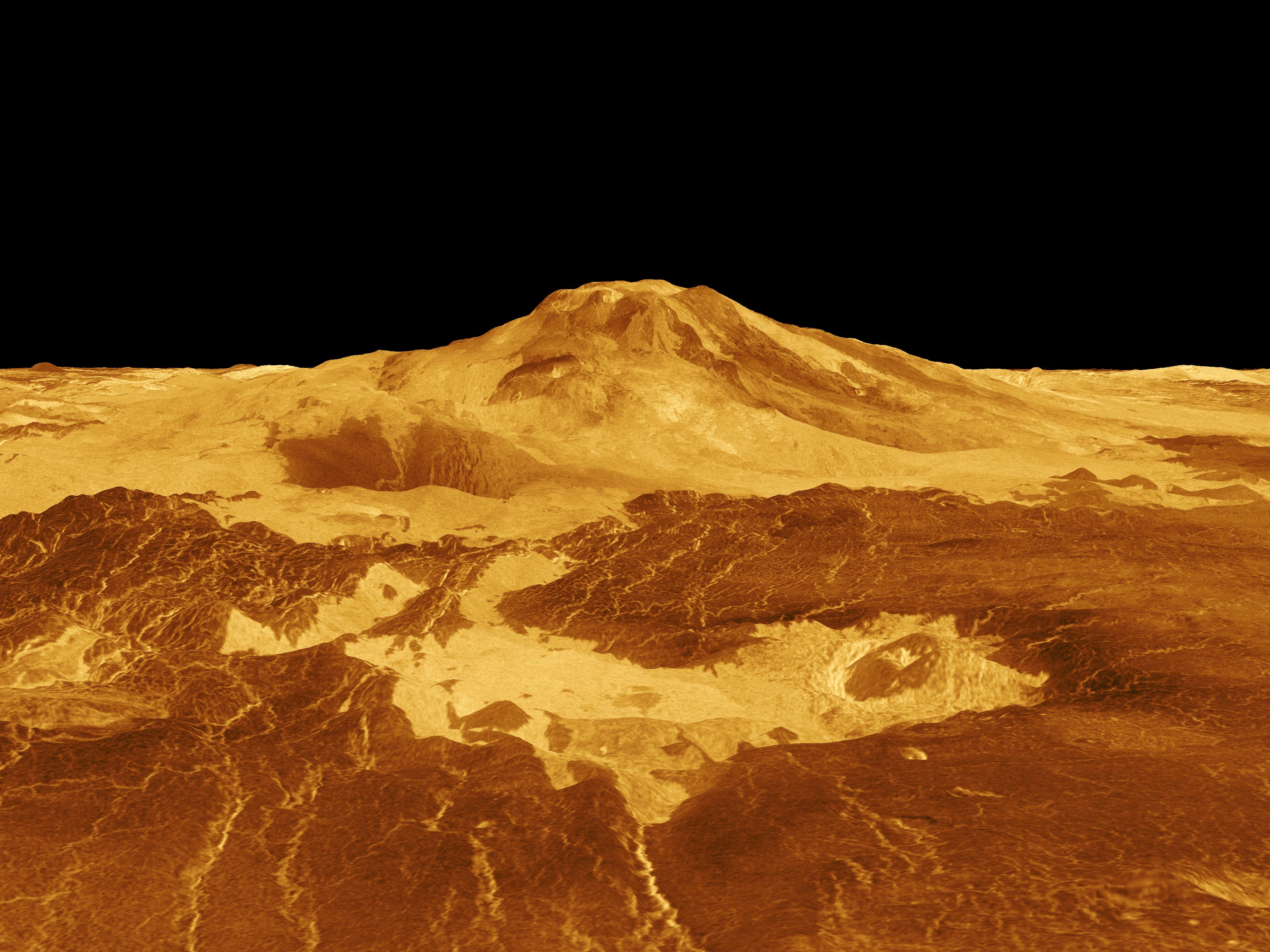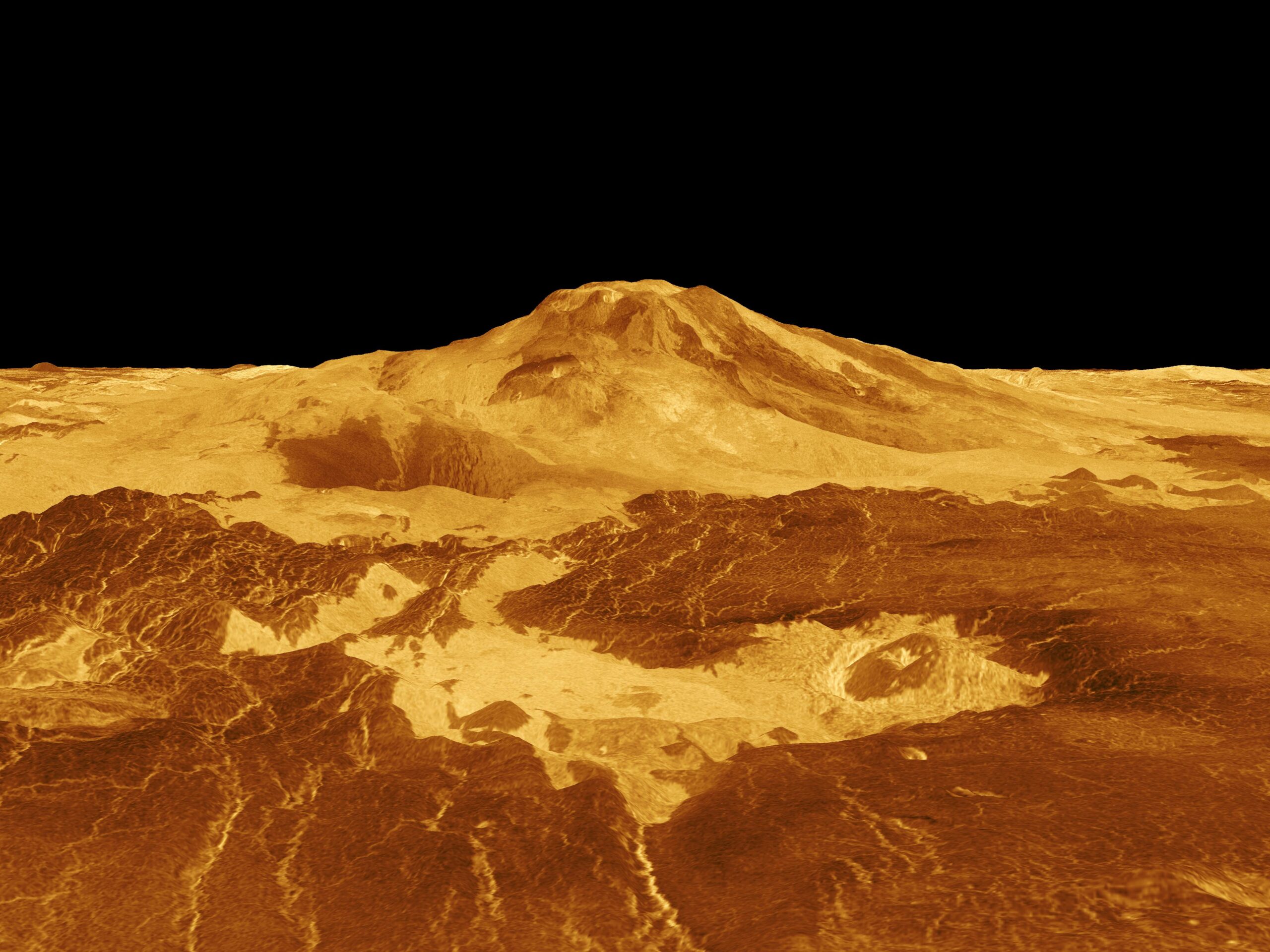For such an old planet, Venus has a relatively young surface. The only way that can be is through volcanic activity.

The volcano Maat Mons towers over its surroundings in this rendering based on data from NASA’s Magellan probe. Credit: NASA/JPL
In the early years of astronomy, Venus was often referred to as Earth’s sister planet. But when NASA’s Mariner 2 probe made the first flyby of the planet in 1962, scientists realized that Venus is anything but earthlike. Its surface is a hellish landscape with temperatures topping 800 degrees Fahrenheit (430 degrees Celsius), and its atmosphere is laced with clouds of sulfuric acid.
With more surveys — particularly from the Magellan craft — scientists were able to use radar and peer beneath the clouds. They found a mystery: Venus’ surface is relatively smooth, with far fewer craters that the numbers that dot Mars, the Moon, and other bodies in the inner solar system. This meant that the planet’s surface was much younger than researchers originally thought. The reason? Volcanoes have brought magma up from Venus’ depths, filling in craters and leaving behind a fresh surface.
Planetary scientists have now concluded that around three-quarters of a billion years ago, Venus experienced a catastrophic volcanic eruption that resurfaced most of the planet — leading one planetary scientist to call Venus “the planet that threw up on itself.” And there is a growing body of evidence that Venus is still volcanically active today. In 2023, researchers looking through old Magellan imagery reported evidence that the volcano Maat Mons erupted in 1991, enlarging a nearby vent and laying down fresh flows of lava.
Follow Astronomy magazine, the world’s best-selling astronomy magazine:
🌎 Website: https://astronomy.com
📖 Subscribe: http://subscribe.astronomy.com
📘 Facebook: https://www.facebook.com/AstronomyMagazine
📸 Instagram: https://instagram.com/astronomy.magazine
🐦 X/Twitter: https://twitter.com/AstronomyMag
Shop Celestron telescopes:
🔭 Website: https://celestron.com
Follow Dave Eicher:
📘 Facebook: https://www.facebook.com/davidjohneicher
📸 Instagram: https://instagram.com/eicher.david
🐦 X/Twitter: https://twitter.com/deicherstar

